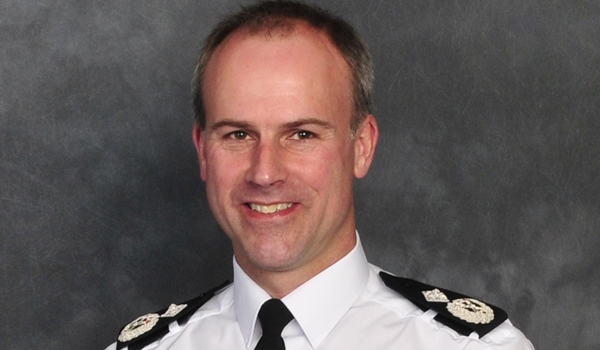All officers challenged to take a harder line on speeding drivers
Rising road deaths mean forces must do more to remind the public that breaking the speed limit is breaking the law, the national roads policing lead has said.
Rising road deaths mean forces must do more to remind the public that breaking the speed limit is breaking the law, the national roads policing lead has said. Chief Constable Anthony Bangham has called for an end to soft enforcement that has encouraged people to not expect charges for driving at up to 79mph on a motorway. Mr Bangham believes the ten per cent plus two buffer zone on speeding means drivers do not treat it as seriously as other road offences. He urged forces to take a harder line on anyone who breaks the limit, and asked all officers to do their part to enforce the law. We have created some confusion on what our messaging is, because we say speeding kills but have introduced the buffer zone, he told Police Professional. If you drive while using your mobile phone, people know that if they are seen by the police they are going to get ticketed, and they will not be surprised by that. If its speeding, they still largely think that they should have a much higher threshold where we start that enforcement. Thats what Im challenging. We need greater enforcement, greater clarity and the expectation from the public that the speed limit means exactly that, so police enforcement in an intelligent, proportionate way can start at the limit and above it. Current guidelines state drivers should not be prosecuted for speeding if they are ten per cent over the local limit with an extra 2mph allowance on top. Anyone who breaks the limit by a small margin is usually offered a speed awareness course instead of points on their licence. The number of deaths on UK roads reached a five-year high in 2016 with more than 1,790 recorded fatalities. Figures released by the Government and the RAC last year suggest drivers treat the other three fatal four offences drink-driving, not wearing a seatbelt and using a phone at the wheel far more seriously than speeding. According to RAC data, six in ten drivers never use their phones behind the wheel and 27 per cent have changed their habits since tougher penalties were introduced. Sixty per cent of drivers also support stricter drink-driving laws, and more than nine in ten regularly wear a seatbelt. Meanwhile, 53 per cent of drivers admitted speeding in 30mph zones in 2016, as did 46 per cent of drivers on motorways. Just 11 per cent of motorway drivers exceeded the limit by more than 10mph, implying they may see the buffer as a safe extent to which they can break the law. Mr Bangham claimed this policy has removed the fear of being caught among most drivers but forces reliance on speed cameras and roads policing specialists have encouraged other officers to be too patient with offenders. Instead, he proposed sending anyone caught speeding by ten per cent or less on a speed awareness course, and more serious offenders should immediately face penalty points and a fine. He added that forces should have the flexibility to take an intelligence-led approach and issue sanctions based on the level of harm in each incident, rather than prosecute everyone caught driving above the limit as much of the national media has reported. The national roads policing working group is currently debating how Mr Banghams proposals should proceed. The chief constables remarks have been condemned by police and crime commissioners (PCCs), who raised concerns about how penalising drivers who break limits by 1mph would affect public relations. Mr Banghams own PCC, John Campion, said: Changing driver behaviour through education, supported by enforcement, is key to making our roads safer rather than just criminalising more drivers through draconian speed enforcement. There is an important difference between more enforcement, and tougher enforcement of our laws. I think our communities have a legitimate expectation that their police will enforce the law in a proportionate and pragmatic way. I fully support more enforcement in line with community expectations and I will continue to provide West M


